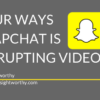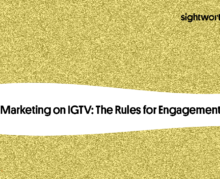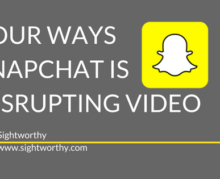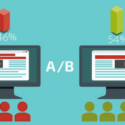There’s been a rustling in the dating world by the likes of dating apps like Tinder, Grindr, Bumble, etc. But what makes these apps significantly different from past ways, like talking to some cute guy/girl you just met on the street?
One answer could be the way that popular culture is immersed in their smartphones, heads down all the time. Some might blame our introversion on the ease of those cellular devices, but with the convenience of modern technology, isn’t it hard to not be without it?
Welcome to the world of the young adult. I’m your Host, Adam Chou, the resident Gen-Z intern here at Sightworthy. Today we’re going to break down why it is that the more ‘traditional date’ has been sidelined for relationships that start on social media apps.
But before we go into the intricacies of the dating demographic, it is important to define a few terms. According to a study by Statistica, a leading source of documented information, 35% of tinder users lie in this demographic of 18-24, with those aged 25-34 representing 25% as of January 2018.
So what does this mean?
It means that the majority of those actively seeking relationships via social are young and mainly in the Generation Z age bracket.
According to Forbes, the generation after Millennials, Generation Z, is defined as people born from the mid-1990s to the early 2000s. This specific group of individuals makes up 25% of the entire U.S. Population. And what do they do with their time? Are they partying and using illegal substances in their spare time? Are they more introverted, taken in by their phones?
As someone in this age bracket, I know some who are in fact partying and having fun in their youth. And I also know some who would rather stay home and binge Netflix or play video games. So when the comparison is made by marketing agencies desperate to target this demographic, it makes no sense to label the ‘type’ of person to their age. The best guess that can be made about Gen Z, are their interests, which are easily definable.
But mainly, the answer to the question:” who is using Tinder?”, might lie in-between the extroversion of party goers, and the introversion of those who stay at home. Many of those that I know who use Tinder use it in order to receive a satisfactory ‘match’ and enjoy talking to random strangers on the internet. Usually these lead to dates, which might lead to casual ‘hook ups’. In this age where the internet is often used to connect, with the advent of social media, it is easier than before to talk to others, which enhances the positive aspects (or consequences) of online dating.
Some people find success with tinder. But often times, others don’t.
This is seen in popular culture, with the terms ‘fuckboy’, or ‘thot’ being thrown around by either side of the perpetuated gender war. Guys who want to get with girls are afraid of being physically and emotionally used by ‘thots’, and Girls are scared of the same fears by ‘fuckboys’.
These terms are widely used to describe those who look for casual sex or “hookups”, rather than the ‘settled down’ nature of a traditional relationship. Most of the time, there is confusion in the dating demographic; those looking for casual sex or hookups, and those who are looking for a meaningful relationship. Sometimes, those two are interrelated, but often times they create awkward scenarios and bad experiences for one or both parties involved.
While I was at Cornell University during my spring break, I met one guy who had been waiting for a girl who told him that she liked him on Tinder, only to find out that days after, she started dating someone else. This, I found out, as he took swigs from a bottle of hard liquor.
Another friend from George Washington University had invited me to her formal because she had been wronged by too many other dates. I only heard about her ex’s from her and her friends, but I understood that I went because she didn’t want to get hurt anymore.It was an odd though that I had, but she was a good friend; I didn’t mention it. But I could only wonder if this was the atmosphere that afflicts college students, a demographic that uses social media to combat the stress of academic life. I don’t party much, but I surely saw enough of my fair share as a student.
The availability of social media and dating apps helps to globalize that effort, where these tools allow for more people to access each other and communicate their feelings towards one another. That means more hearts broken, more people hurting.
And then there is the issue of hiding behind a series of images. How do you know that you’re next date won’t be a psychopath? How do you know they won’t scam you out of a free meal? There are certainly many who use these apps to do the latter. Some even use their bodies to sleep with anyone they want, just so they can say that they slept with ‘so and so’.
Yet millions of people use dating apps. They take that chance, because although t may be fleeting, it is how they want to live. Dating apps allow people the freedom to pick whomever they want to meet at a swipe of their finger, because it is now culturally acceptable to do so.
Dating, however you slice it, is a commitment by those involved; until one of them gets tired. Because regardless of how they met, it’s up to those “star-crossed lovers” to find happiness in their relationship. And if they don’t – at least they can try again on Tinder.
After all, nobody’s perfect – we all make mistakes.











